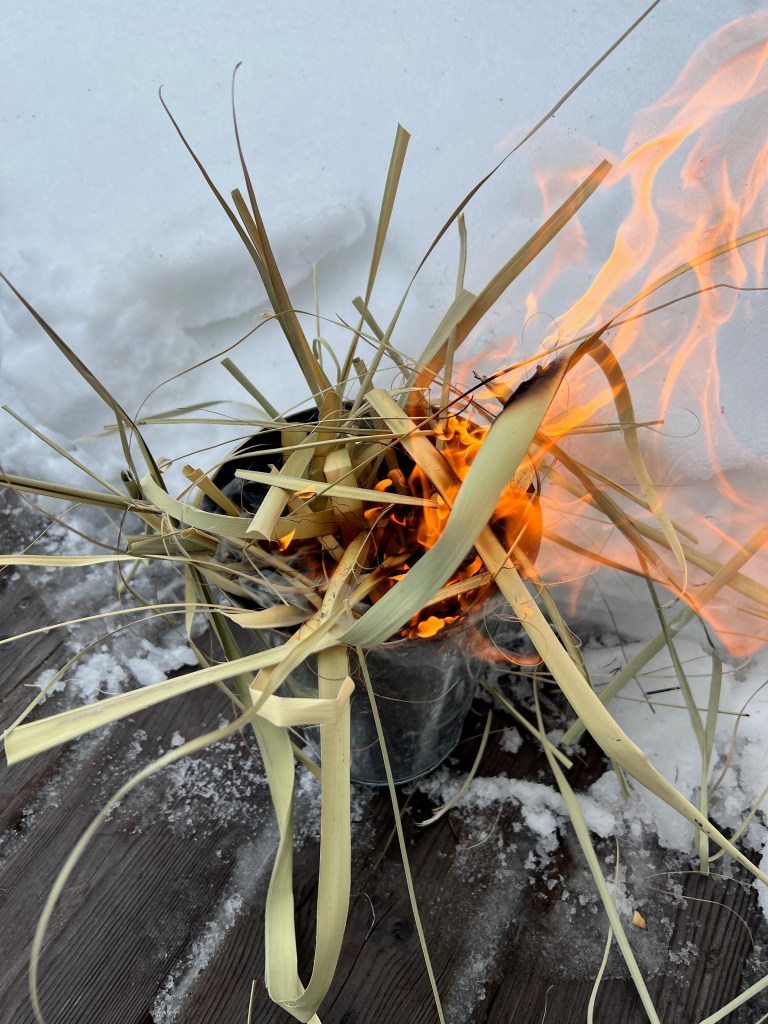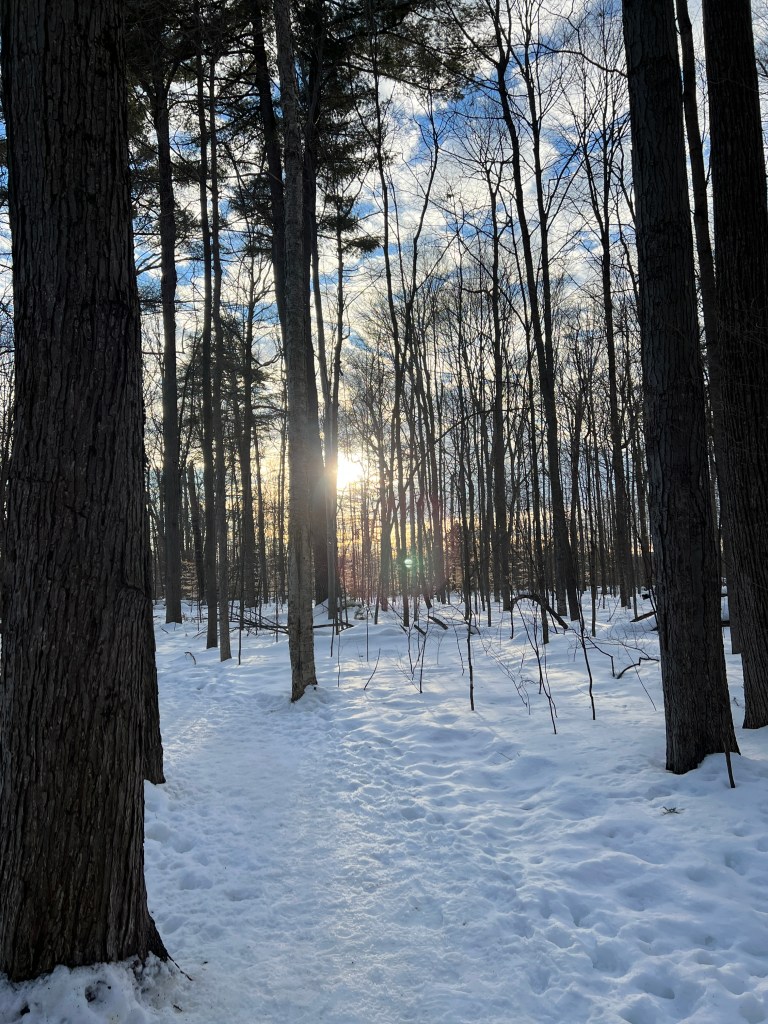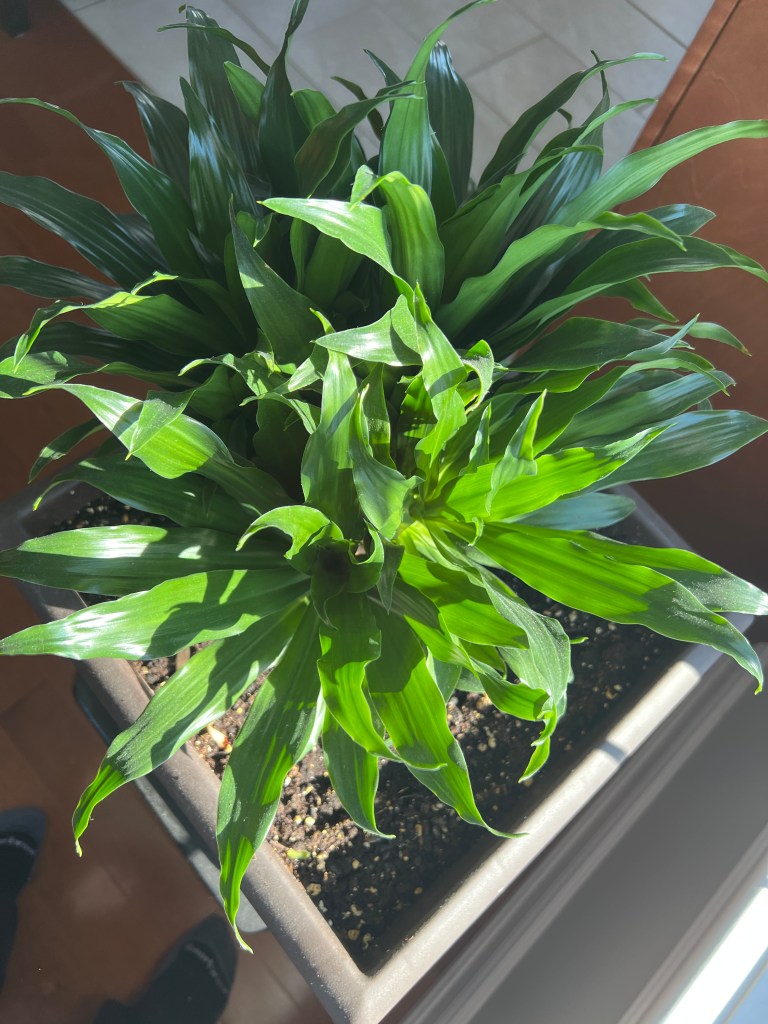While the Gospel of Mark is about the desert, Matthew is the Gospel of mountains.[1] There are five mountains in the Gospel. And during five Sundays in Lent, we will visit each of the mountains Jesus visits on his journey to the cross:
The Mount of Temptation, The Mount of the Beatitudes/Sermon on the Mount, the Mount of the Feeding, the Mount of Transfiguration, and the Mount of Olives. And from each visit to a mountain, and based on the Gospel reading for the day, we will conclude with a guiding principle—a tip for the journey ahead.

The first mountain we visit in Lent is the Mount of Temptation. And the biggest temptations Jesus faced were to believe lies about who he was.
The Gospel reading for today[1] describes Jesus’ forty days in his wilderness journey. And in the desert Jesus encountered the father of all lies, the devil, who tempted him. The devil tempted Jesus not to believe in what God told him at his baptism, which happened right before he went off into the desert. At Jesus’ baptism, God said: “This is my Son, the beloved, with whom I am well-pleased.”[2]
In three different ways, Jesus was tempted by the devil to believe lies that undermined the truth of his identity—who he was. What are these lies? First, Jesus is tempted to prove his identity only if he changes a stone to bread. In other words, he is defined by what he does. The first lie.
Second, Jesus must verify what was said about him in the scriptures; he is defined by what others say about him. The second lie.
And third, the devil takes him to the highest mountain—the mount of temptation—to show him all the kingdoms of the world to tempt Jesus into believing he is who he is only by having it all! The third lie.[3]
Three lies. And three holy responses:
The truth Jesus needed to affirm in his life to thwart the devil’s temptations was that: First, Jesus belonged to God already, before doing anything. God’s love for Jesus happened before his ministry and purpose on earth was achieved. Second, God’s love for Jesus needed no verification by others; it requires no test. And third, God’s pleasure and favour did not depend on how much power or riches he had.
These temptations are also aimed at each one of us. In our day and age, we are tempted by these lies: First, we are what we do; we have value only by our achievements, success, and accomplishments. Our value stems from our action, a belief which results in always running from pillar-to-post, over-working, active all the time. Lie number one.
Second, we succumb to believing we are what others say about us. In the early part of our lives, it’s important to listen to and imitate even those whom we admire and love. It’s how we start developing our personalities. But eventually, we must also strike our own course and be who we are without always responding in order to please others. We make decisions according to our own conscience and not according to what others would have us do. In the end we are not what others say about us. Lie number two.
Finally, we are told the lie that are what we have. And it’s not just how much stuff we have, or what neighbourhood we live in as a sign of who we are. It’s also how much we know. Knowledge. Information. I can only be me if I have all the right ideas, or enough information. Lie number three.
Each of these lies if we pursue them without reflection and self-awareness can take us far off course; they can distract us and negatively affect our relationships to the point of not knowing who we are, with disastrous results.
And so, on this First Sunday in Lent, the first ‘tip’ for the journey is: Remember who you are.
The story is told of how little, first-born Joshua reacted to having a new baby sister.
“Be careful,” was Mom’s advice to Joshua, “she’s just a few days old and we can’t be rough with her.” She repeated this instruction often those first days.
Late one night Mom and Dad heard footsteps down the hallway and into the nursery. Dad was on duty, so he quickly got out of bed and followed Joshua into his sister’s room. When he poked his head to see what Joshua was up to, Dad was a little startled:
Joshua was practically inside the crib with little baby sister, his body hanging over the railing and his legs dangling over the top.
“Joshua! What are you doing?!” whispered Dad as loudly as a whisper can be. “Don’t wake up your sister!”
“Shhhh!” Joshua replied, “I am listening to what my baby sister remembers about God.”
This story about children is about remembering. Remembering God. Remembering that we come from God. Maybe we need to be like children our whole life long when it comes to having confidence in our identity and remembering to whom we belong.
Remember who you are. In Christ.
You are not what you do. You are not what others say about you. You are not what you have. If you’re not these three things, who are you?
You are a beloved child of God. You have worth and value before you do anything. You need not prove your worth by what you do or don’t do. Just as you are, you are loved. You, like everyone else, are a human being not a human doing. You can stop, rest. It’s ok. Leo Tolstoy gave some great advice for the action-oriented among us: “In the name of God, stop a moment, close your work, look around you.”[4]
Moreover, you are a beloved child of God, not the product of someone else’s wishes for you. You are beloved in your own right, on your own two feet, in your own good mind and heart. You are uniquely created, fashioned in God’s eye before you were born. You are like no other on this planet since the beginning of time and forever more. You make a unique contribution by who you are. Don’t take to heart what others say about you, good or bad. Because what they say is not the whole truth about you. Be yourself.
And finally, you are a beloved child of God, not because of the size of your financial portfolio and not because you have all the right ideas. But because your heart beats and you breathe the air that everyone else breathes on earth. You have value even without anything anyone may acquire in life.
On this first leg in our Lenten journey, remember who you are. Because when we know that we are unconditionally loved, we can love others in kind, without placing false expectations on them:
We make our love not dependent on what they do or don’t do for us. We make our love not conditional on what they have. And we love others not based on their reputation, pedigree or good word in the gossip circles.
Imagine a world where all of us remembered who we truly are in the unconditional love of God!
[1] Belden C. Lane, Desert Spirituality and Cultural Resistance; From Ancient Monks to Mountain Refugees (Canadian Mennonite University Press, 2011), p.22.
[2] First Sunday in Lent, Matthew 4:1-11, Year A (Revised Common Lectionary).
[3] Matthew 3:17
[4] Christopher L. Heuertz, The Sacred Enneagram: Finding Your Unique Path to Spiritual Growth (Michigan: Zondervan, 2017), p.185-190.
[5] Cited in Daily Prayer for All Seasons (New York: Church Publishing, 2014), p.49.




